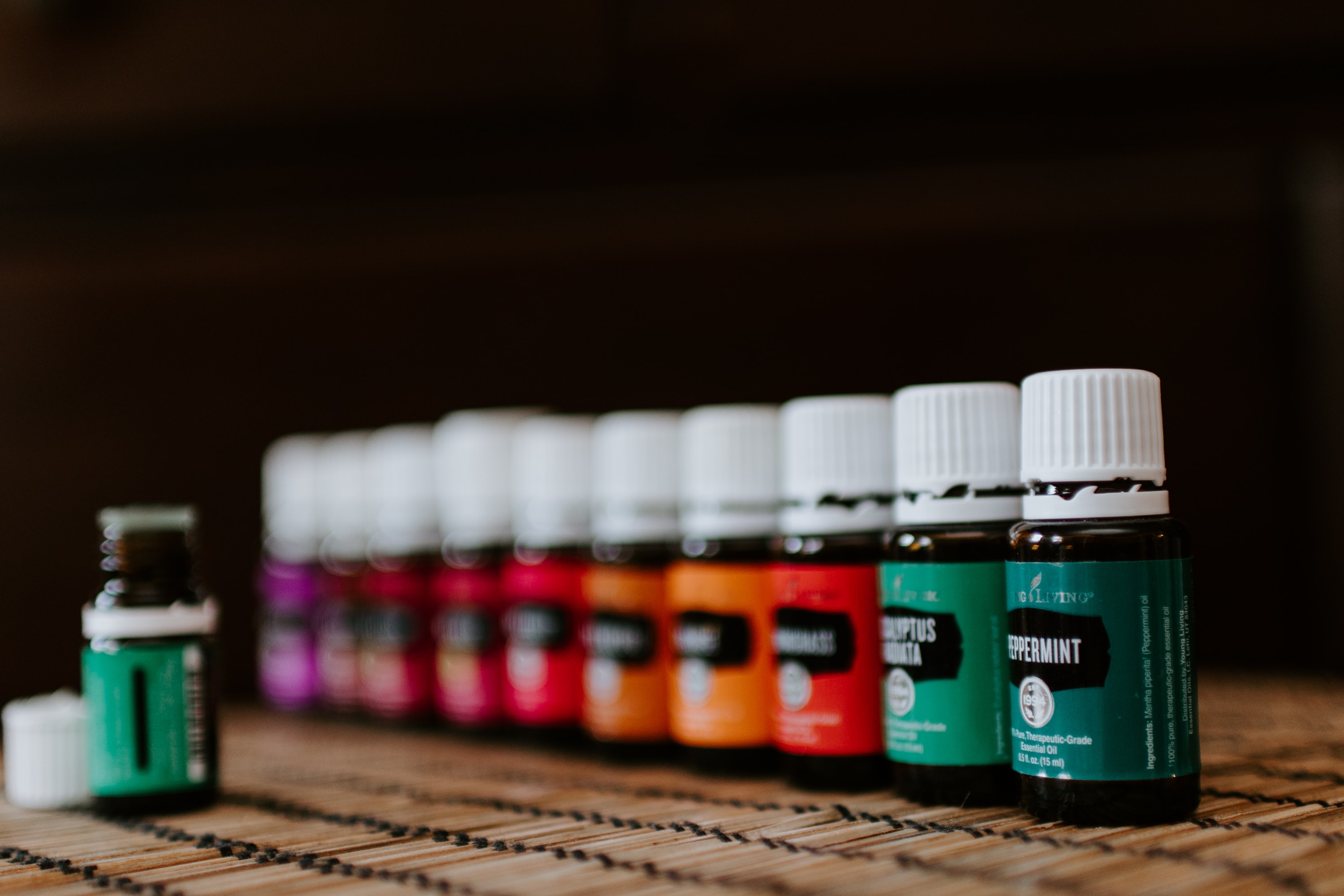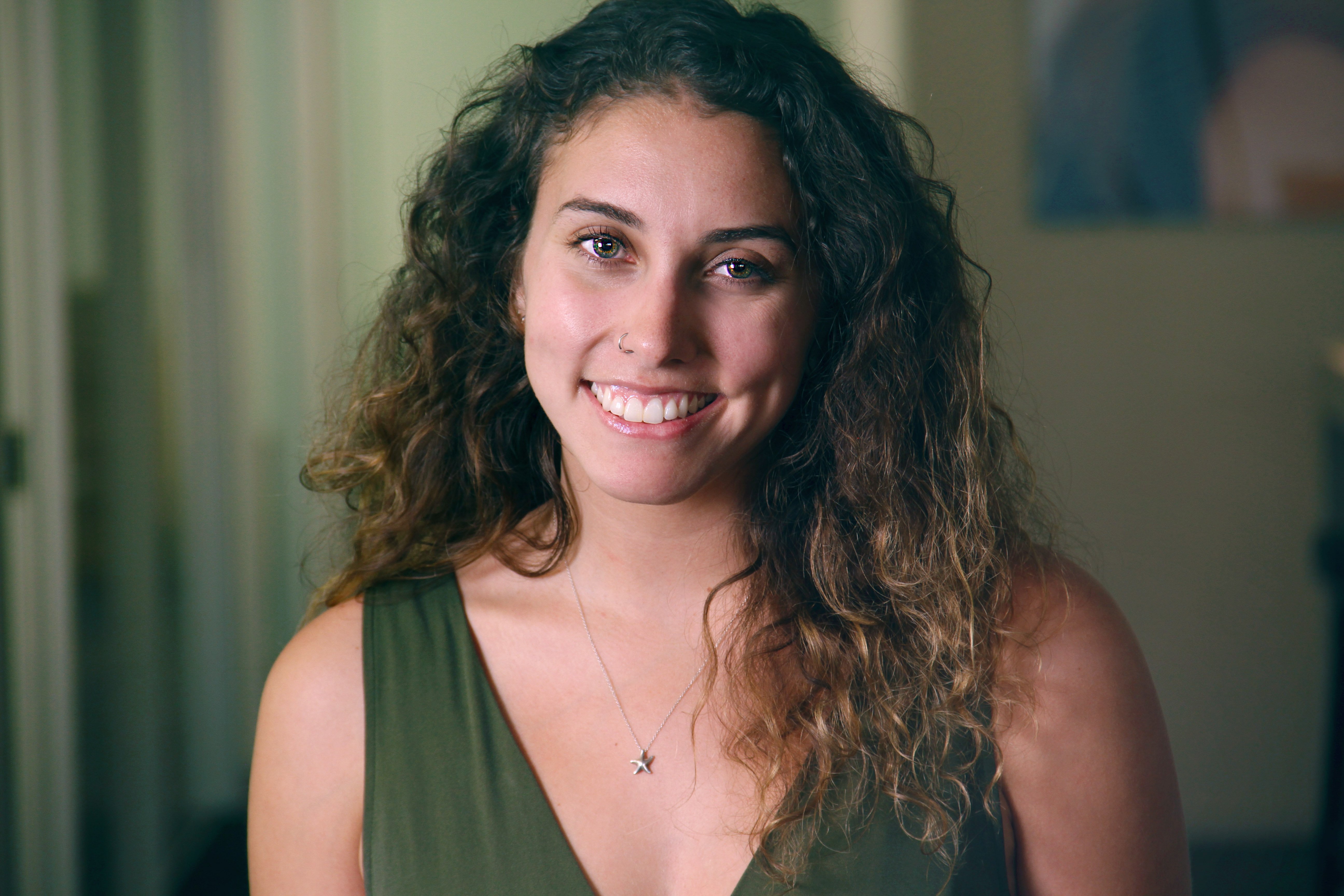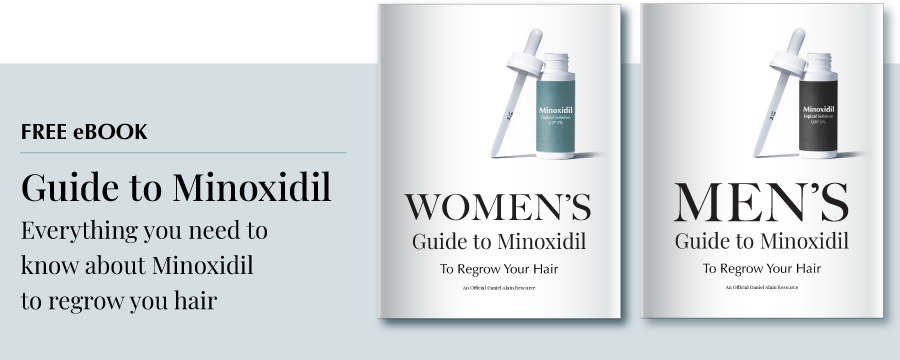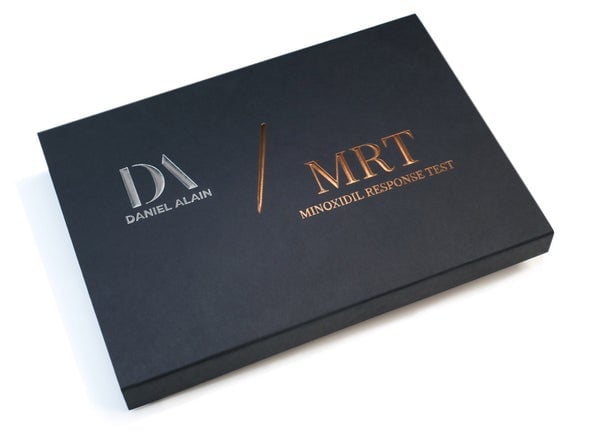Can Using Essential Oils Prevent Hair Loss?

When you start losing your hair, you’re willing to try almost anything to stop it. Our hair is often directly linked to our identity, so you want to do everything you can to retain it. Many people decide to try Minoxidil, the only topical FDA-approved hair growth treatment. Others look for alternative methods. While some of these methods are not proven, others have been shown to work with some results to reduce and prevent further hair loss.
At Daniel Alain, we strive to provide high-quality hair loss solutions. As experts in all things hair loss, we want to make sure you have all the right information before trying any hair loss solutions so you don’t waste time or money. You want to know if these solutions will work.
We’ve heard some buzz in hair loss resource groups about using essential oils for hair loss and growth. In this article, we’re going to investigate the efficacy of these claims and see if essential oils can help prevent or stop hair loss.
What Are Essential Oils?
Essential oils are compounds extracted from plants that have been distilled into a concentrated liquid form. Essential oils are often used in diffusers or for aromatherapy. They have pleasant smells and each oil is thought to have different properties. For example, lavender is associated with calm, and peppermint is thought to help mental focus.
Why Are Essential Oils Thought to Help With Hair Loss?
Some essential oils have stimulating properties. In some studies, there has been evidence that these oils can help with hair growth or hair loss in certain groups, such as those with alopecia areata. Some studies showed promising results on mice but have not been tested enough on human test groups to produce definitive results. While more studies need to be conducted on human subjects with larger test groups, and the conclusions must be corroborated, there is some evidence that hair loss can be helped by these oils.
What Are the Most Popular Essential Oils for Hair Loss and Why?
Rosemary Oil
Rosemary essential oil is thought to have hair growth properties. In a six-month study comparing the efficacy of Rosemary oil and Minoxidil to treat androgenetic alopecia, the Rosemary essential oil was found to be as effective as Minoxidil but yielded less scalp itching.
Tea Tree Oil
Generally, tea tree oil is a powerful cleanser and can be found in face wash and skin care treatments. It is thought to help hair growth by “unplugging” hair follicles. In a 2013 study, tea tree oil was mixed with Minoxidil and compared to the efficacy of Minoxidil alone. When paired with tea tree oil, Minoxidil yielded significantly better results than Minoxidil alone or the placebo group. However, more studies need to be conducted to see the efficacy of tea tree oil alone.
Peppermint Oil
Peppermint oil is thought to help hair growth during the anagen, or growth, phase of the hair cycle. One of the major parts of peppermint oil is menthol which may explain why it is thought to stimulate growth. A 2014 study looked at the efficacy of saline, peppermint oil, jojoba oil, and Minoxidil for hair growth among mice. Results for the peppermint oil group were promising; at the end of the study, the mice showed thicker and longer hair along with a fuller appearance overall.
Essential Oil Combinations
Different essential oils can be mixed for aromatherapy. In a seven-month study, 86 patients with alopecia areata were divided into two groups, with one massaging essential oils into their scalp and the other using a placebo. 44% of the participants who used the essential oil combination saw improvement compared to 15% in the control group. While not a majority, the results suggest that essential oils can be helpful and even yield results when treating a hair loss condition.
General Precautions For Using Essential Oils
Essential oils are not regulated by the FDA so when choosing an essential oil, be sure to read the ingredients to make sure the product is pure. Johns Hopkins recommends the following when looking for pure essential oils. When looking at a label, be sure the product contains the Latin name of the plant. Research the company you are purchasing an essential oil from to see if they are reputable. Fragrance oils are not pure and should be avoided as they are chemically based rather than plant-based. Pure essential oils are typically sold in a darker, glass bottle to help preserve the product for a longer period of time.
While essential oils are generally safe to use, some may produce side effects such as itching or a rash. Before trying any essential oils for hair loss, perform a small patch test. Do this by applying a small amount of the oil onto your skin and seeing whether your skin reacts.
Do not ingest essential oils and avoid contact with the eyes. If you experience an allergic reaction, discontinue use immediately.
Choosing a Solution That Works for You
After reading this article, you now have a better understanding of how essential oils can be used to treat hair loss. While some studies show that essential oils may be effective, there have not been extensive trials to verify the efficacy of these claims. With this in mind, results may vary. However, because of the promising results, you may consider adding essential oils to your beauty routine or combining them with other hair loss products you might be using.
One of the most promising results from the studies involved tea tree oil and Minoxidil. While Minoxidil is the only FDA-approved topical solution on the market, it doesn’t work for everyone. You need a sufficient amount of the SULT1A1 enzyme for Minoxidil to convert into its active form.
With Daniel Alain’s Minoxidil Response Test, you’ll discover whether you have enough of the enzyme to successfully use Minoxidil. After you receive your kit, pluck six strands of hair and then send them into our CLIA-certified labs for testing. Within 14 days, you’ll know whether Minoxidil will be an effective treatment for you. Order the Minoxidil Response Test and discover if Minoxidil treatments will work for you. And if they will, consider adding some tea tree oil into your routine for maximum results.





